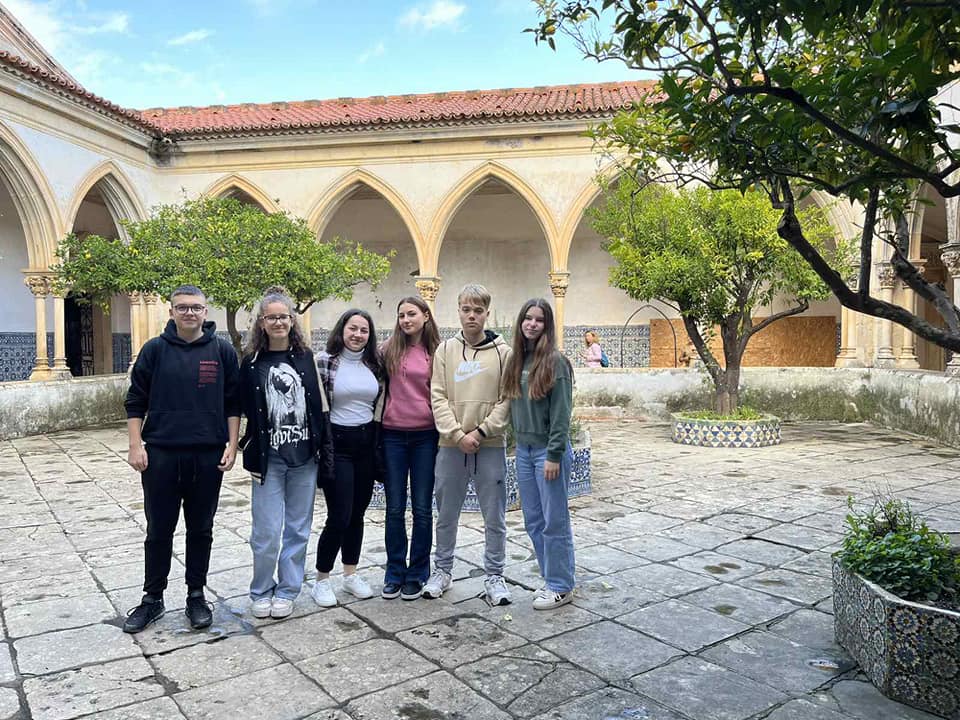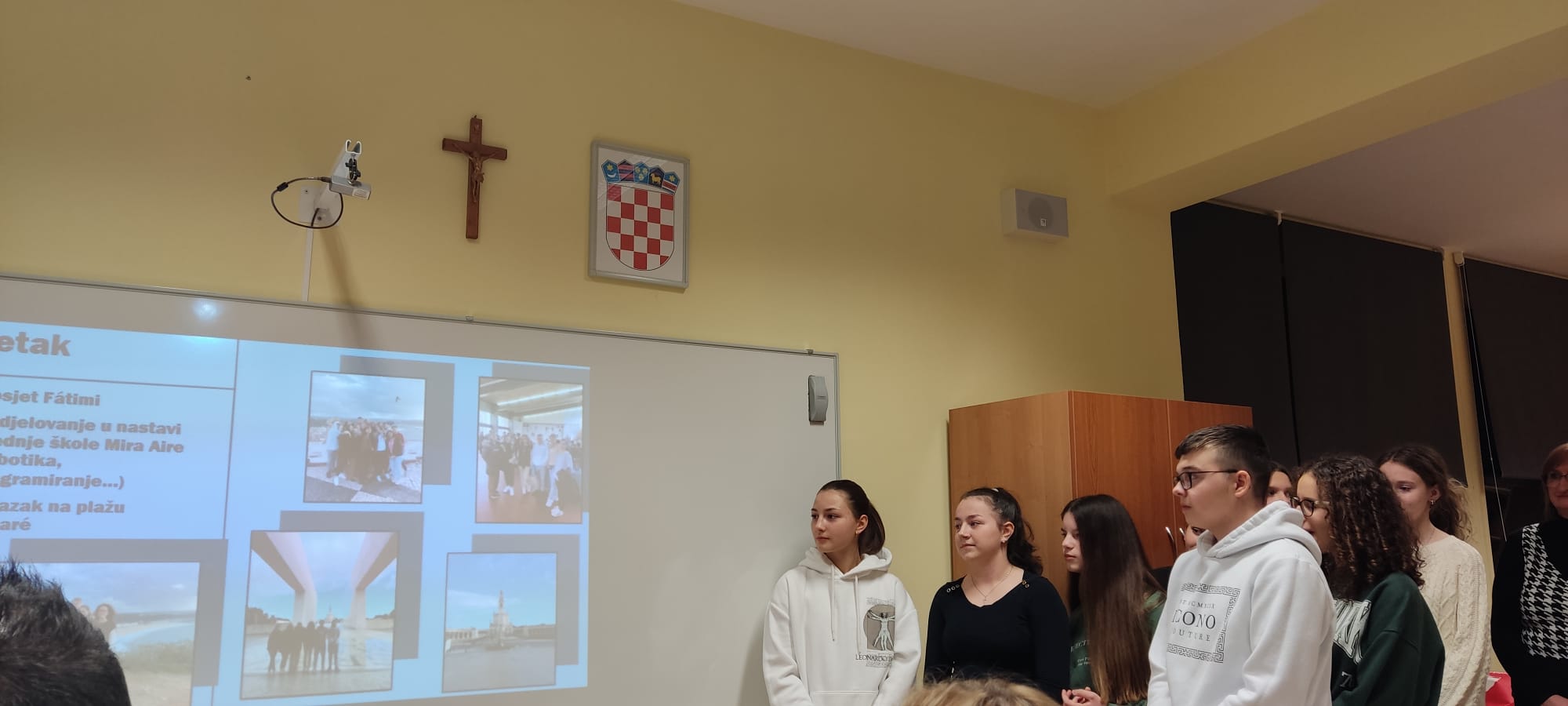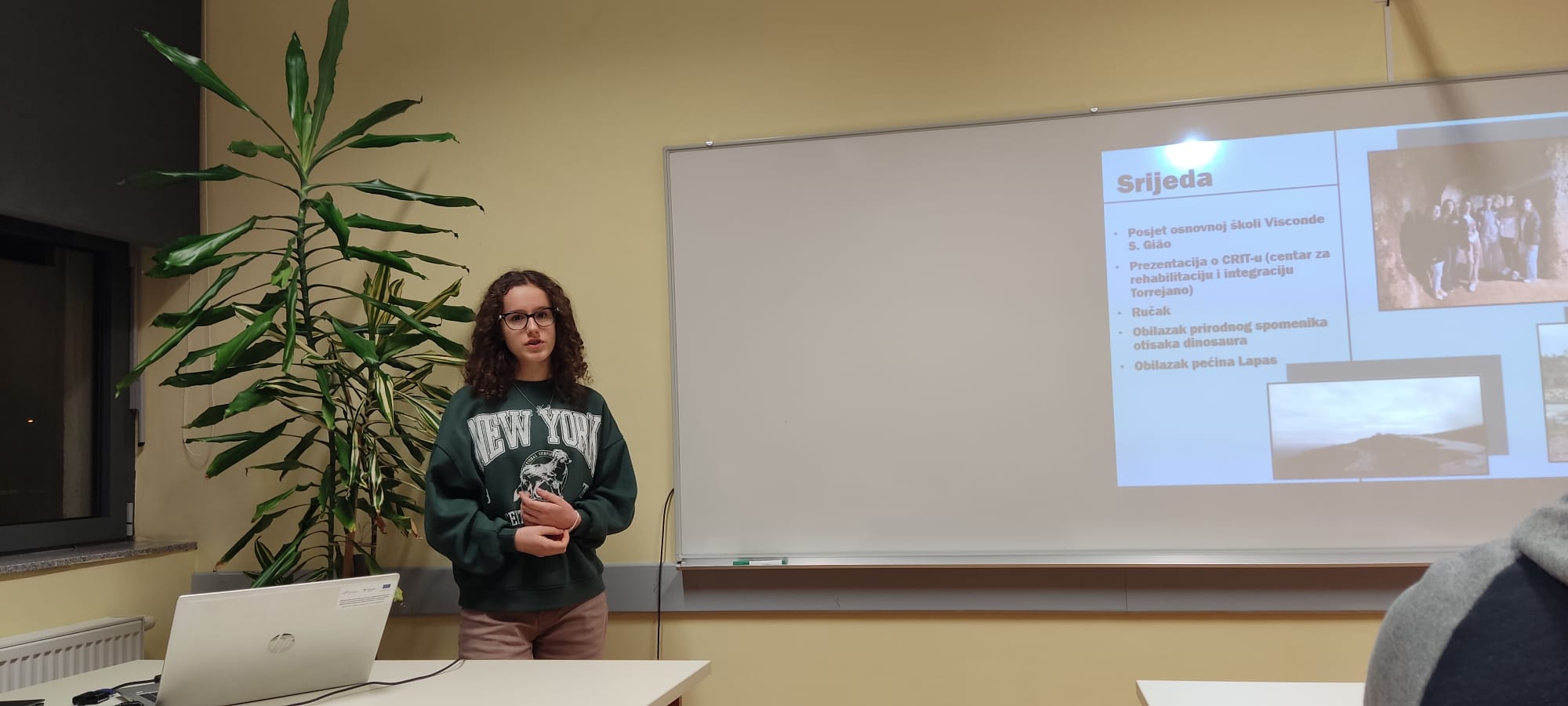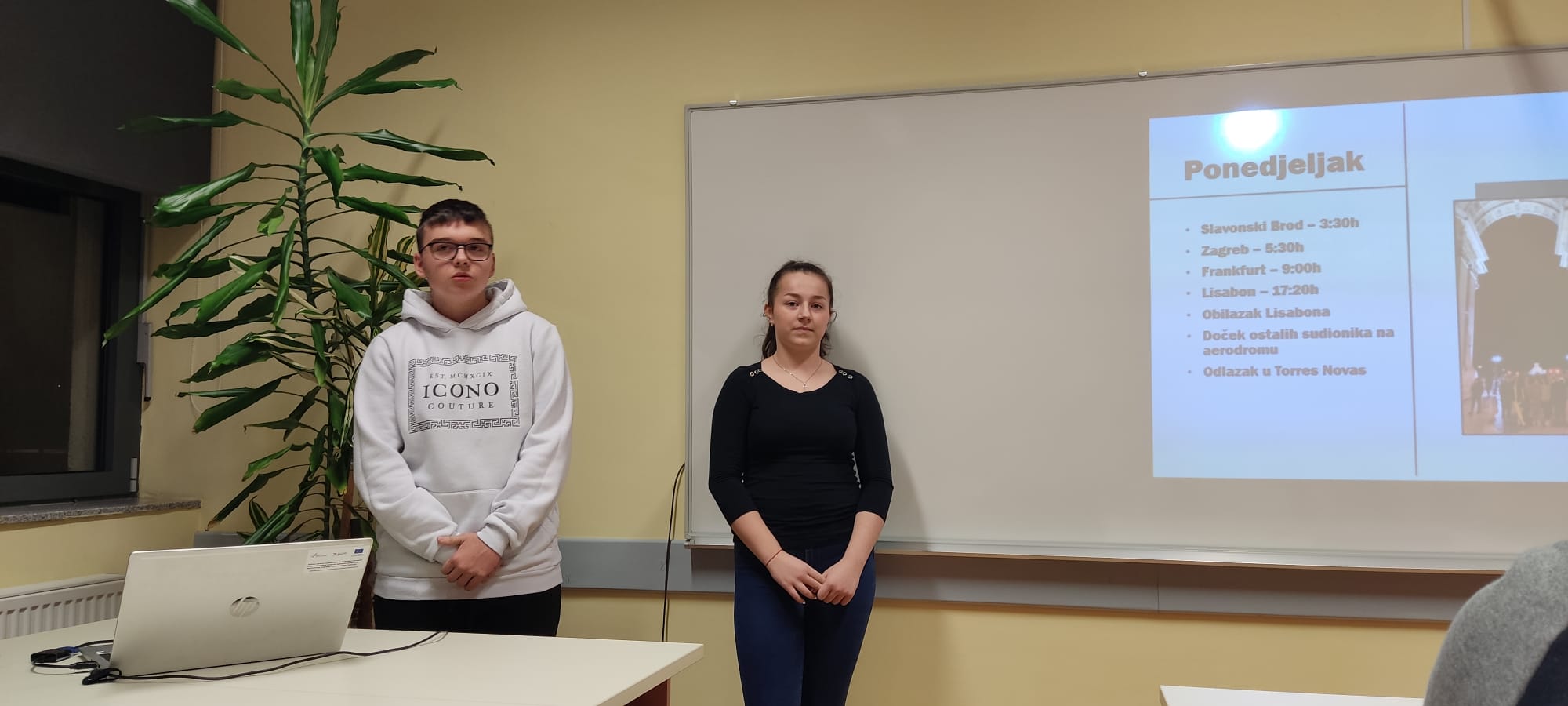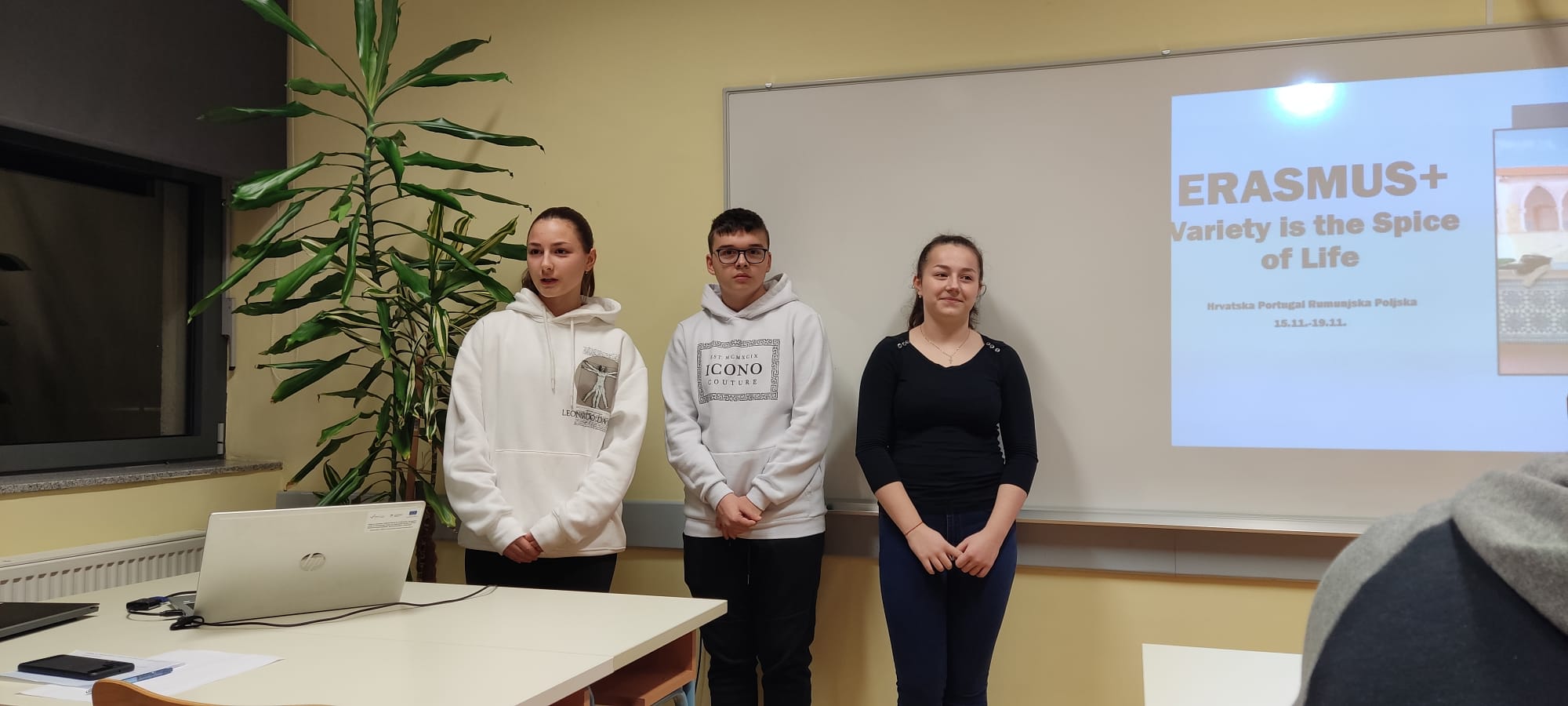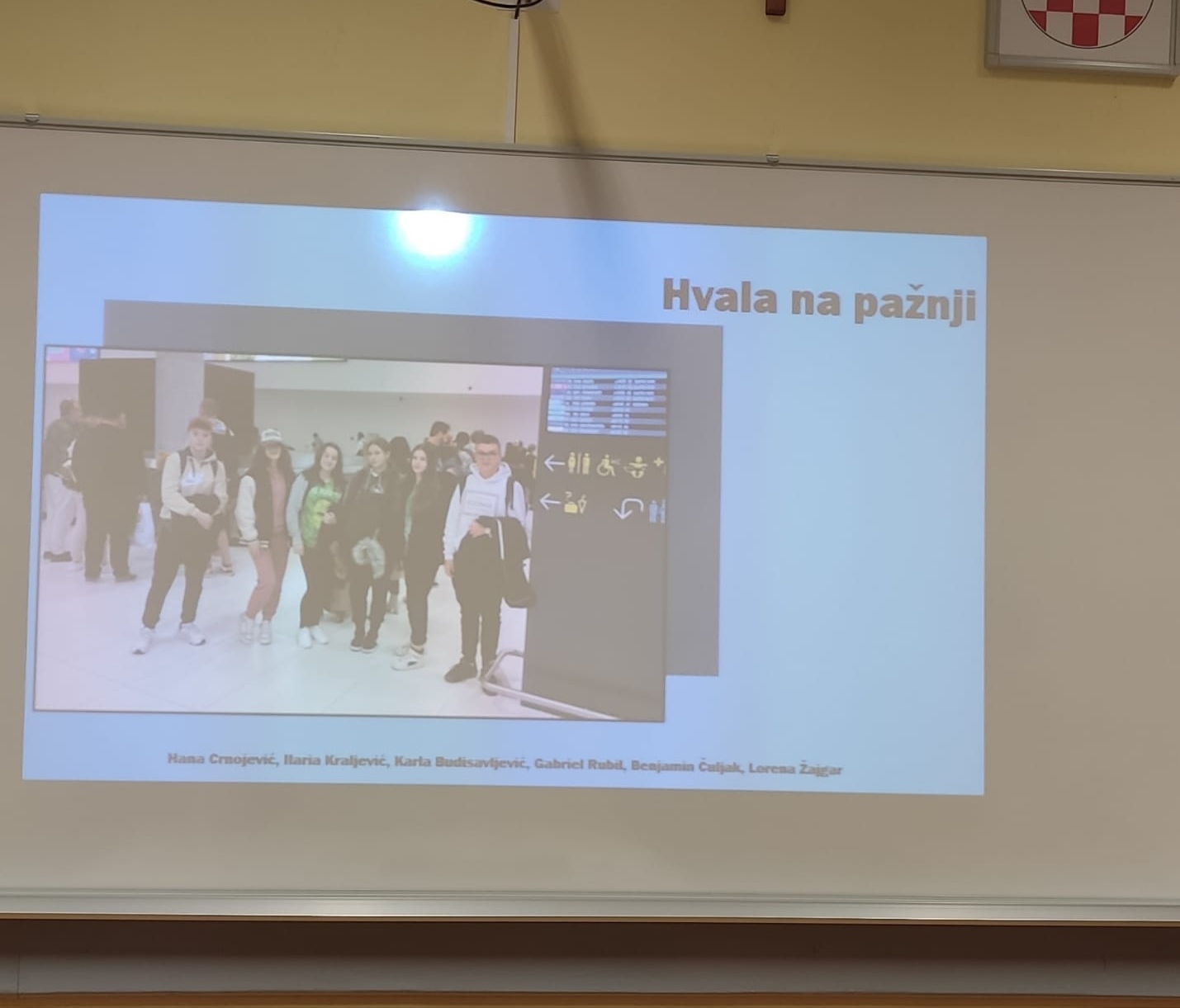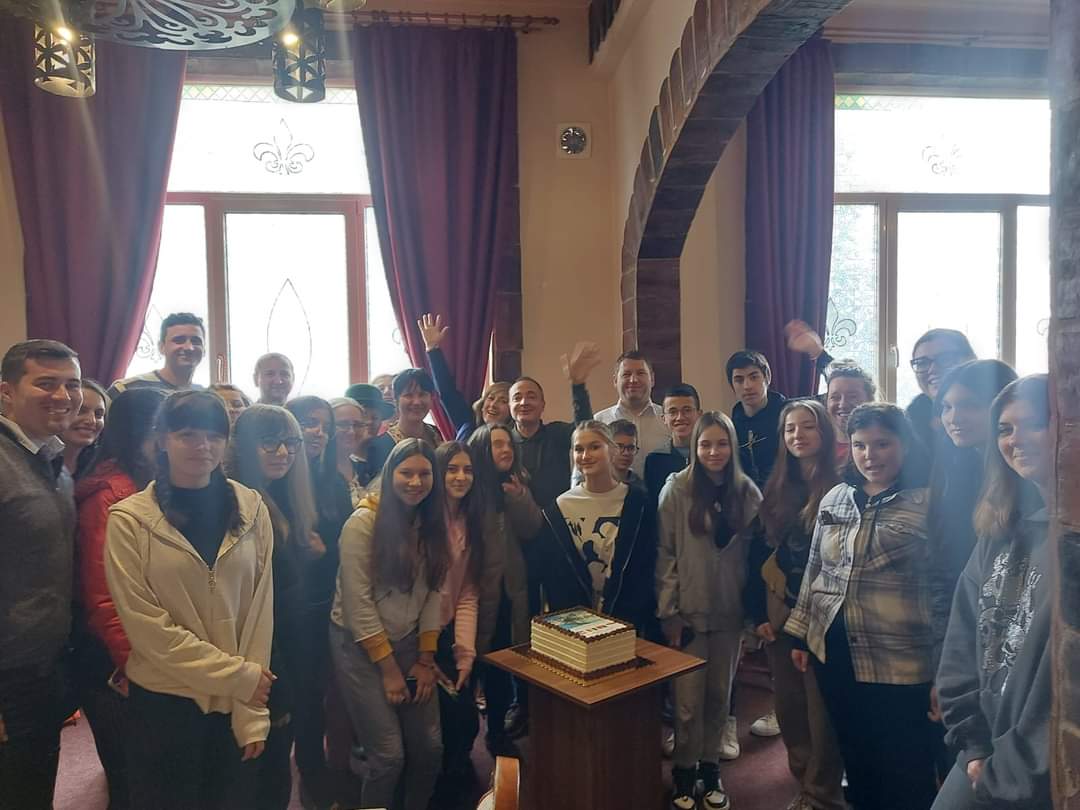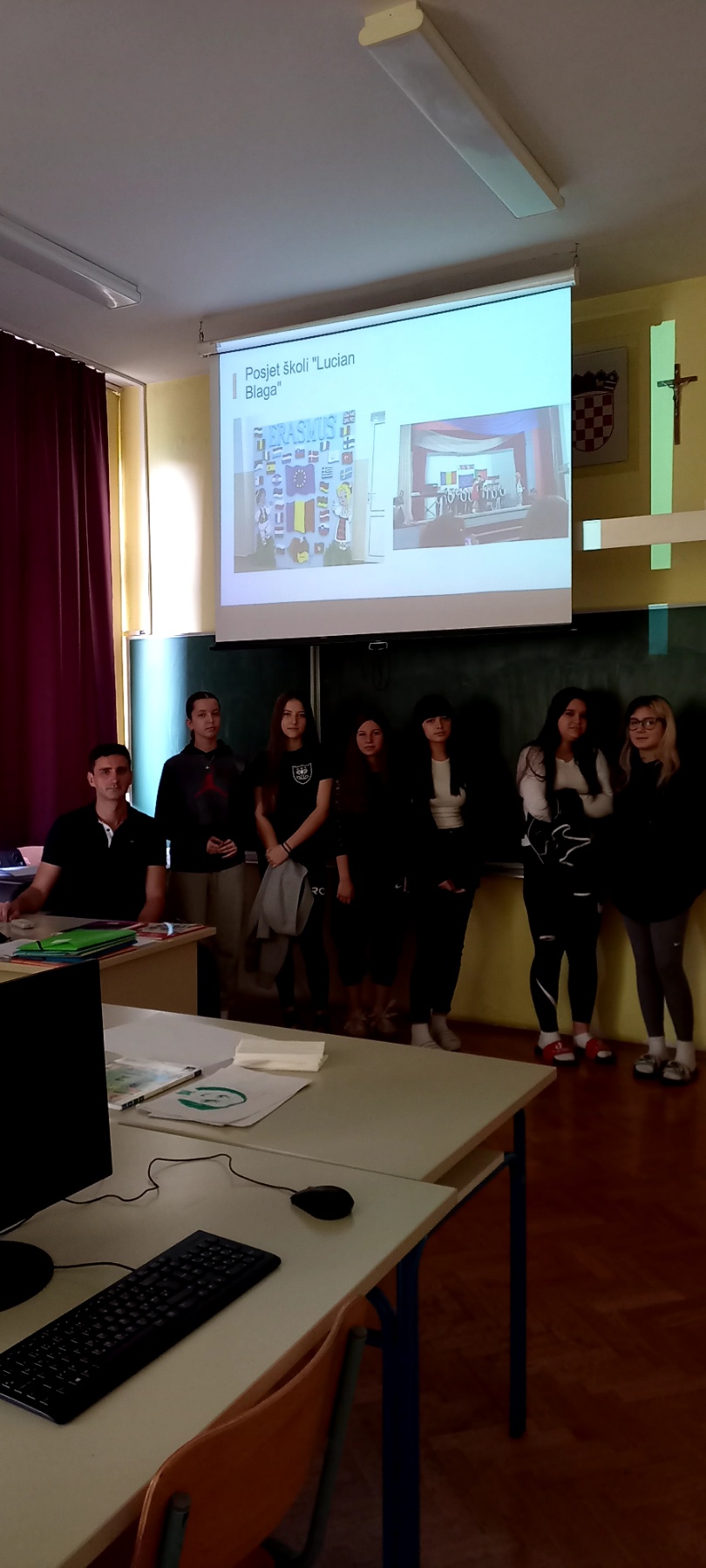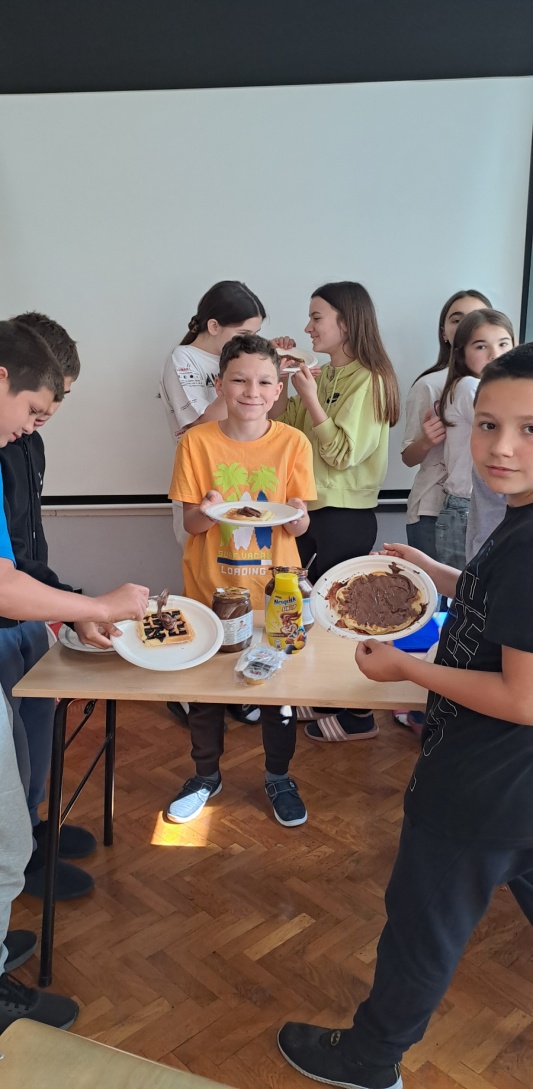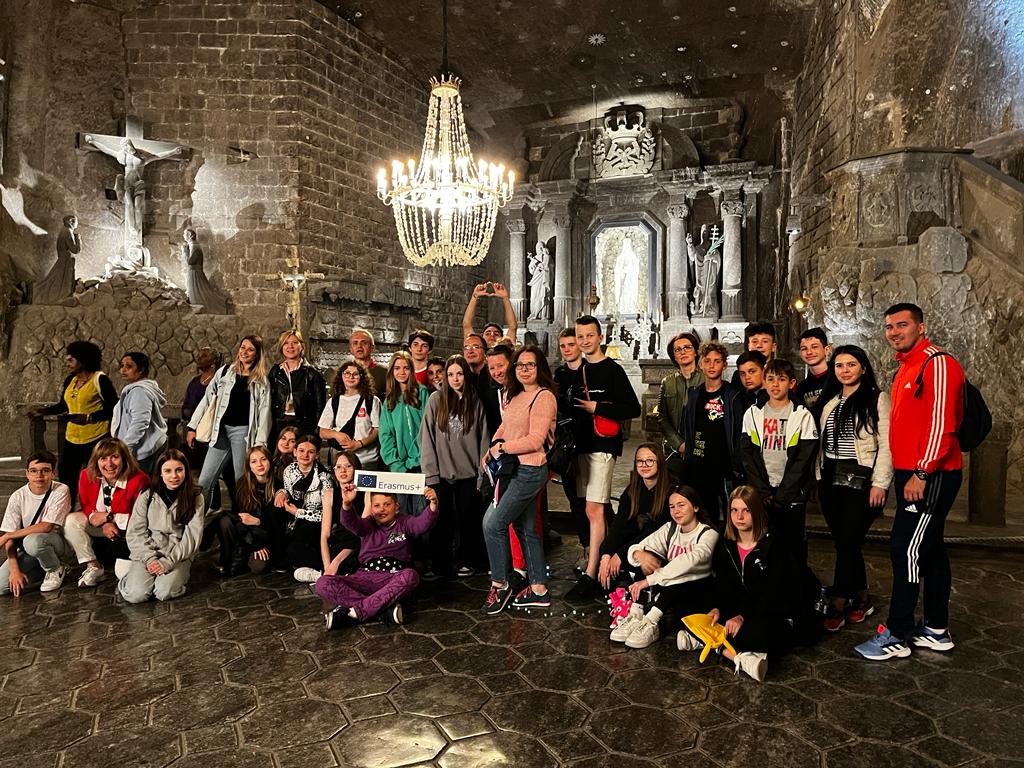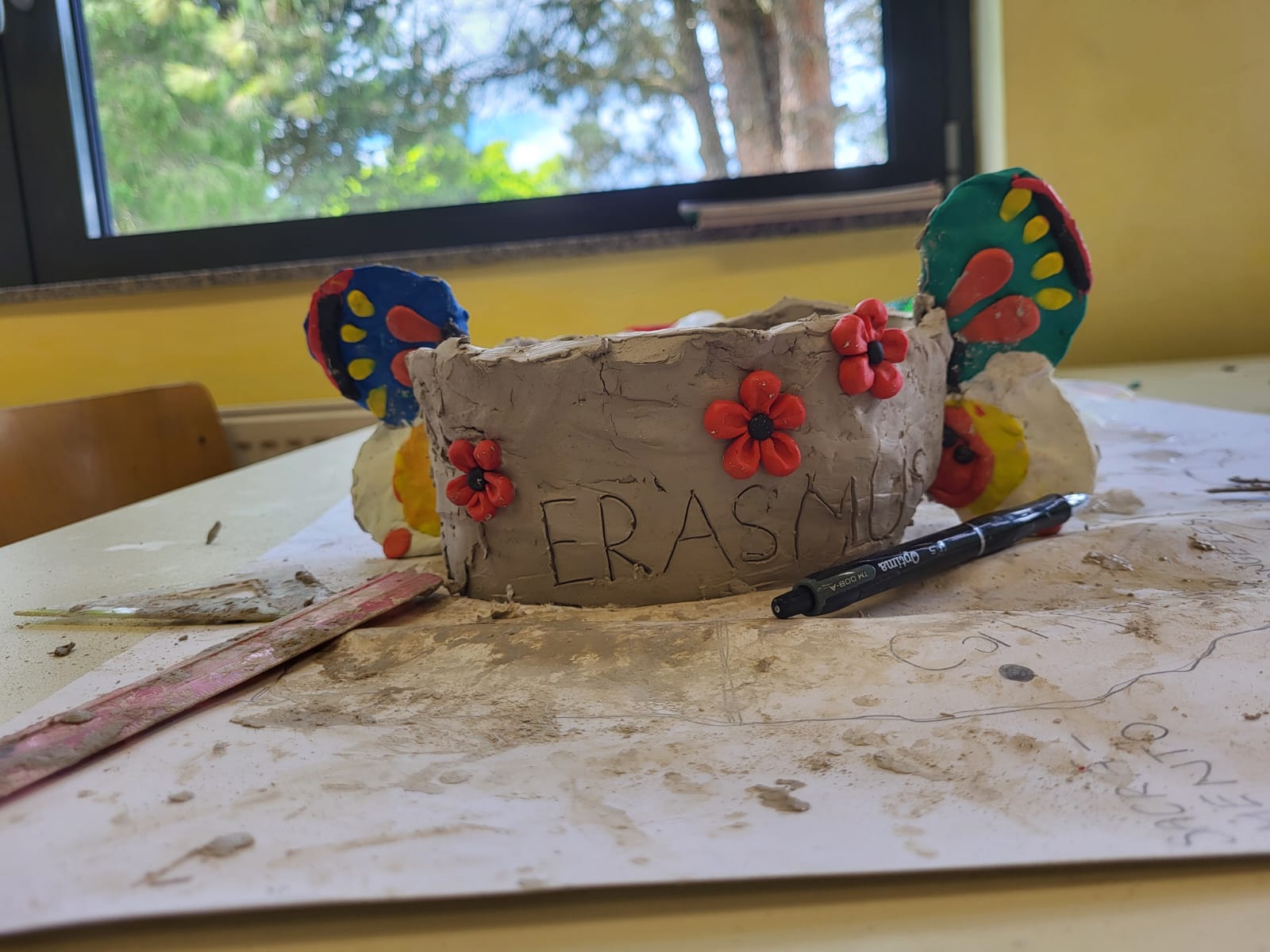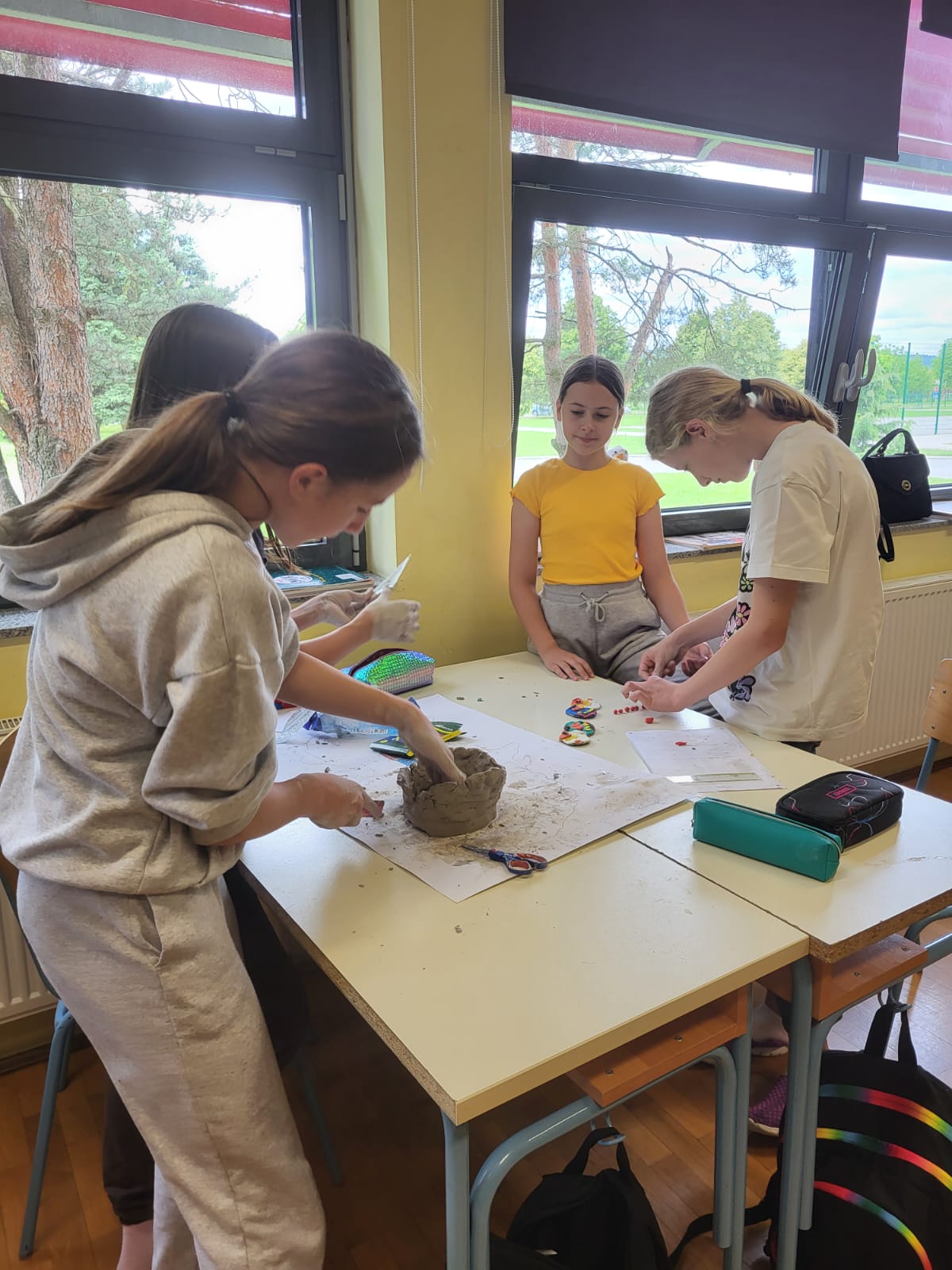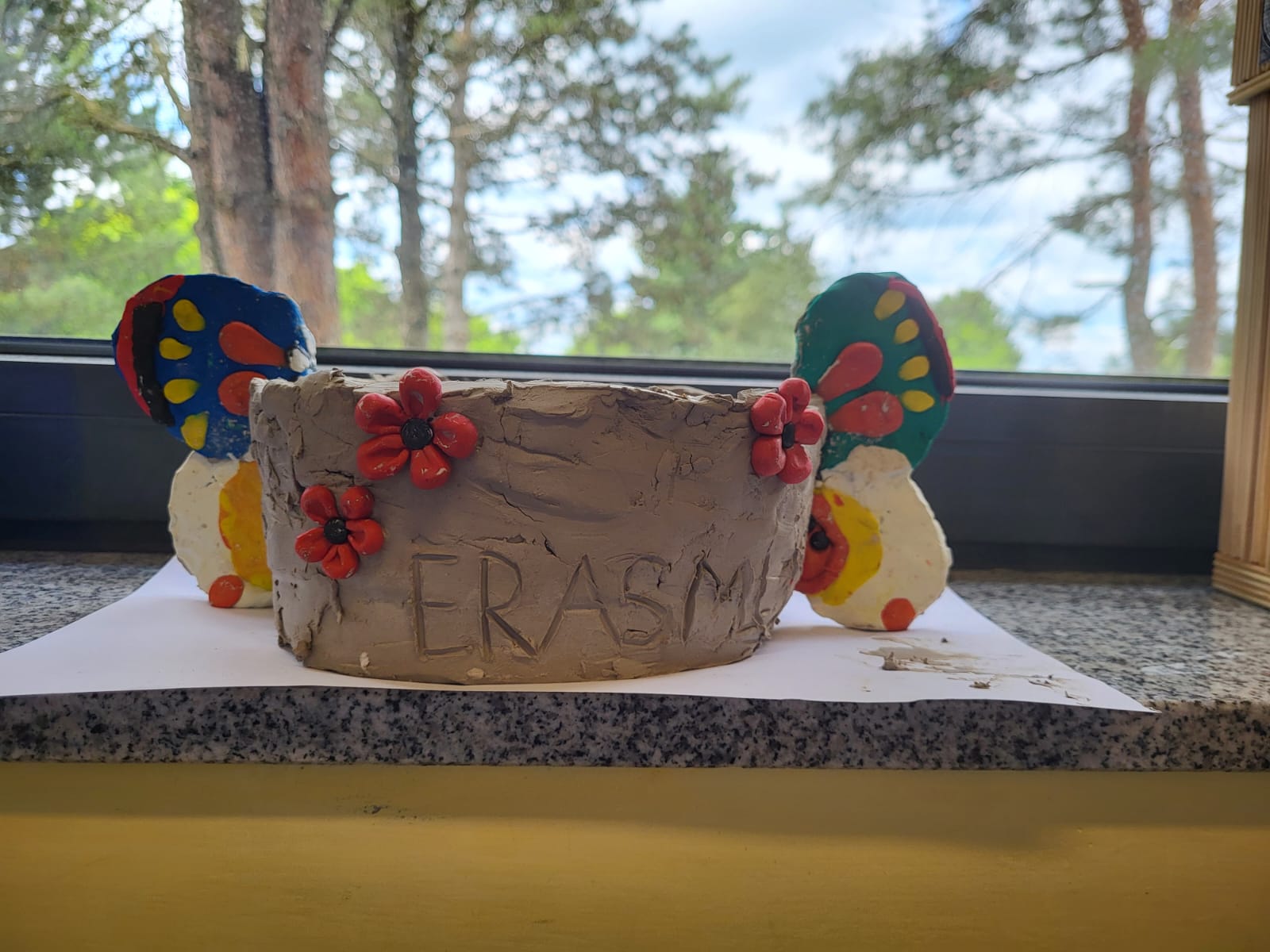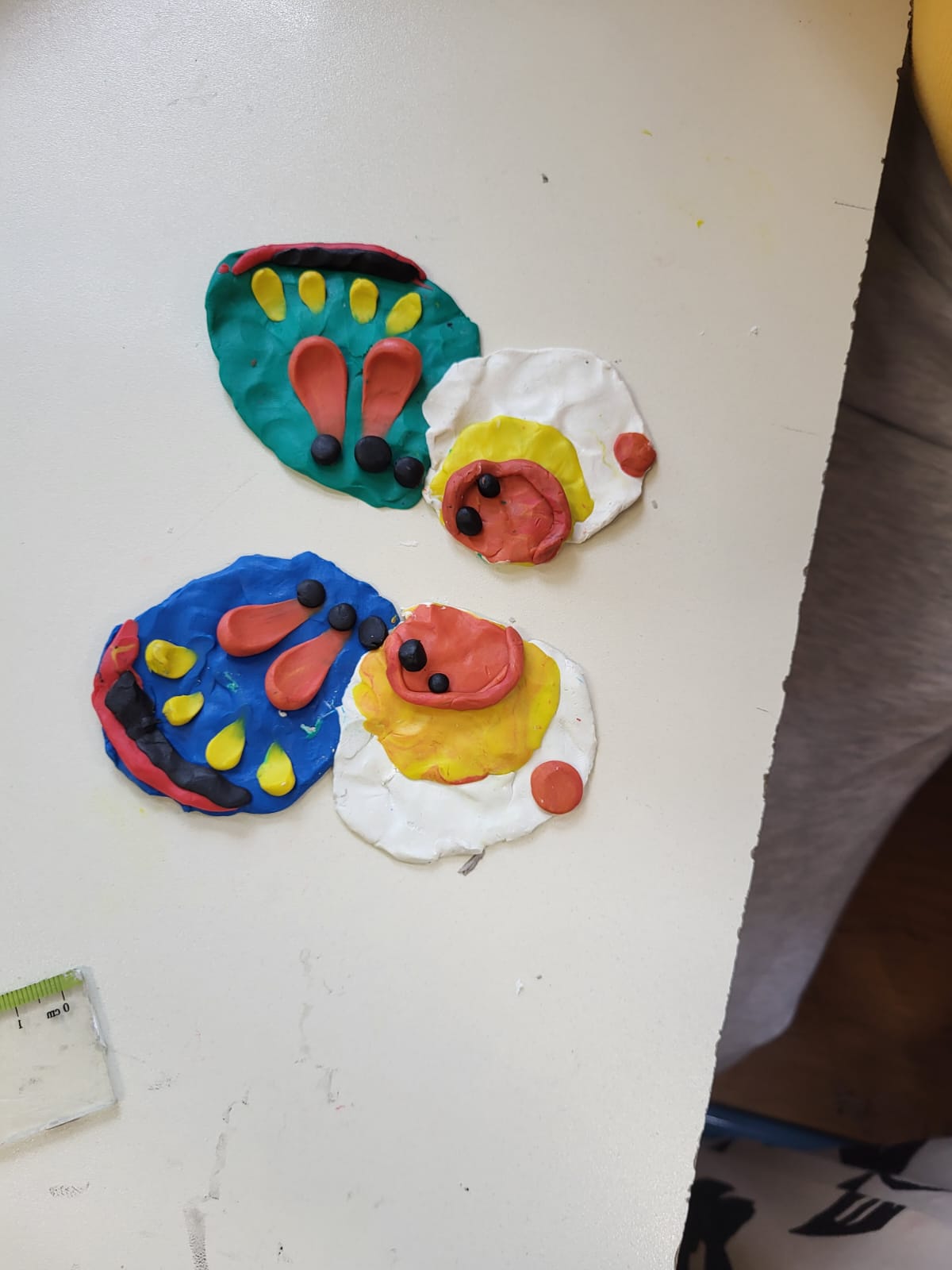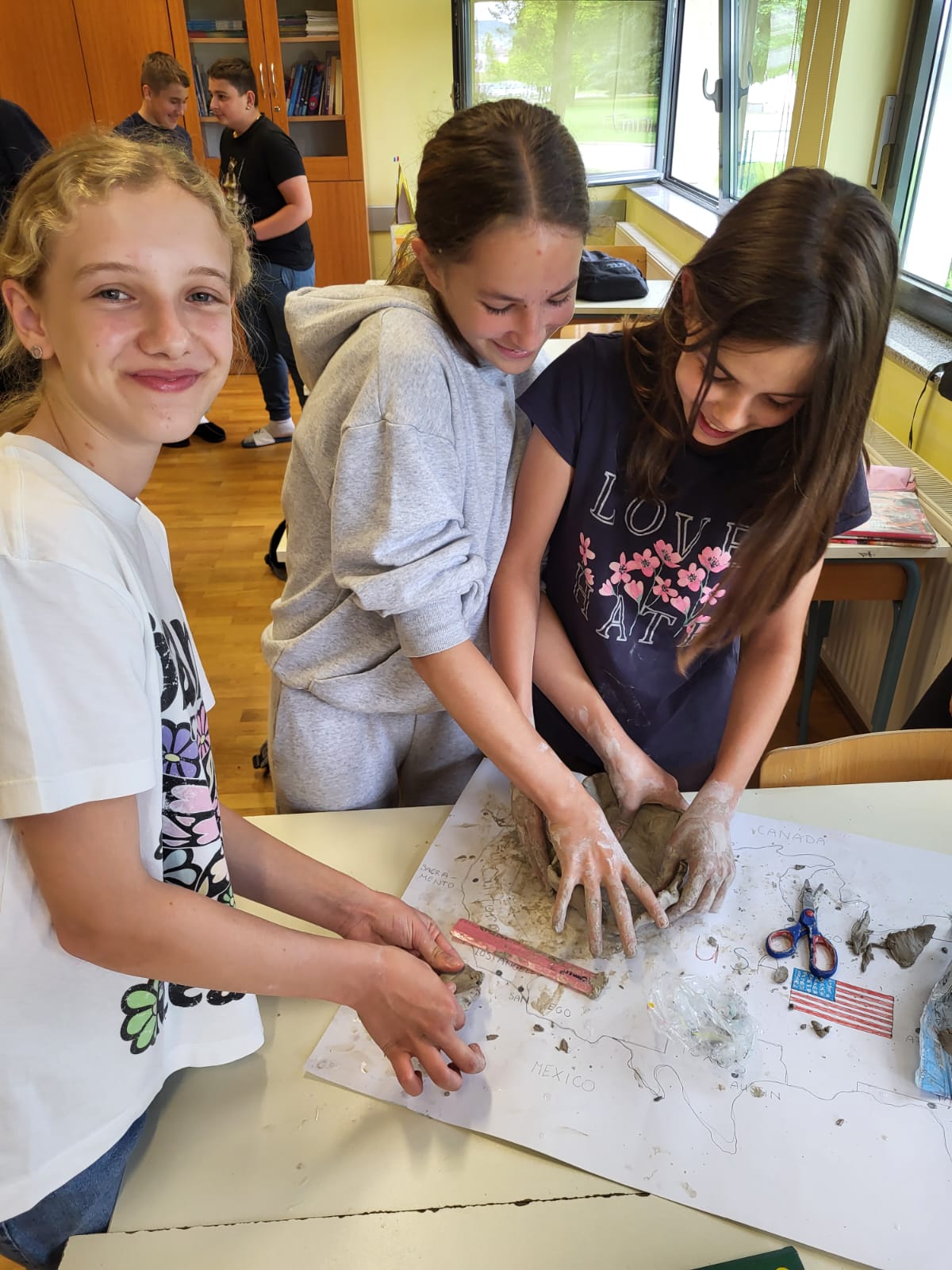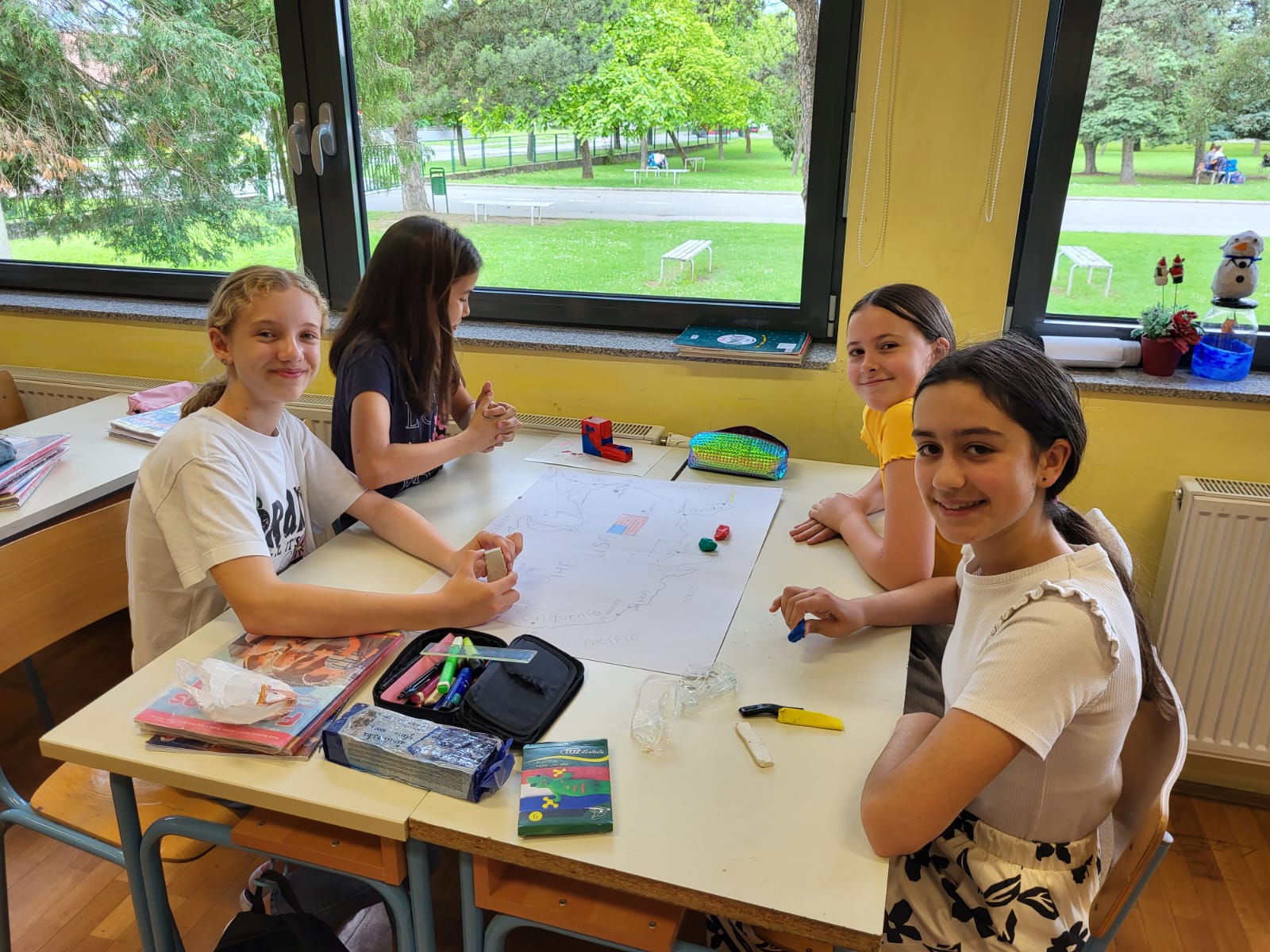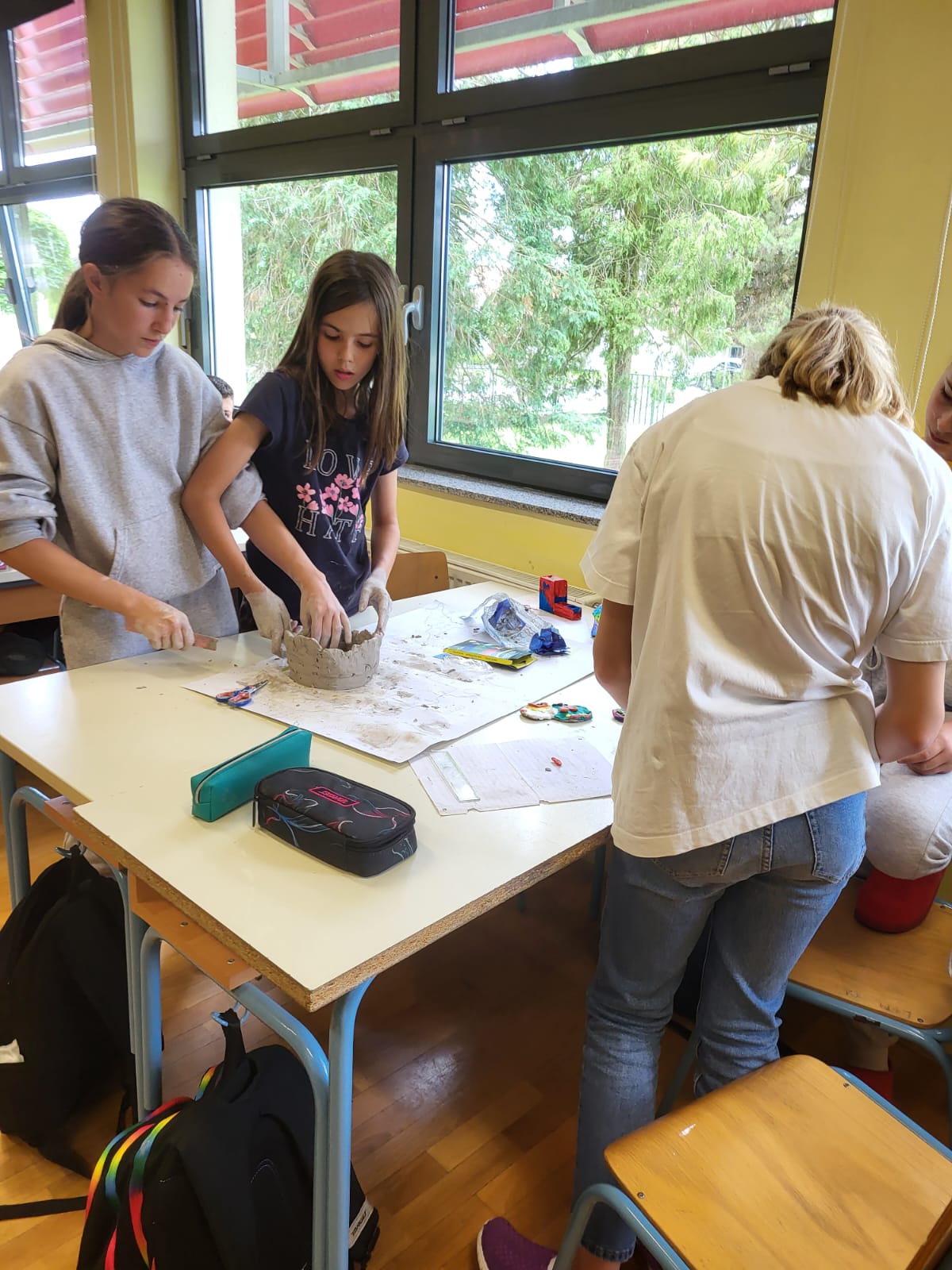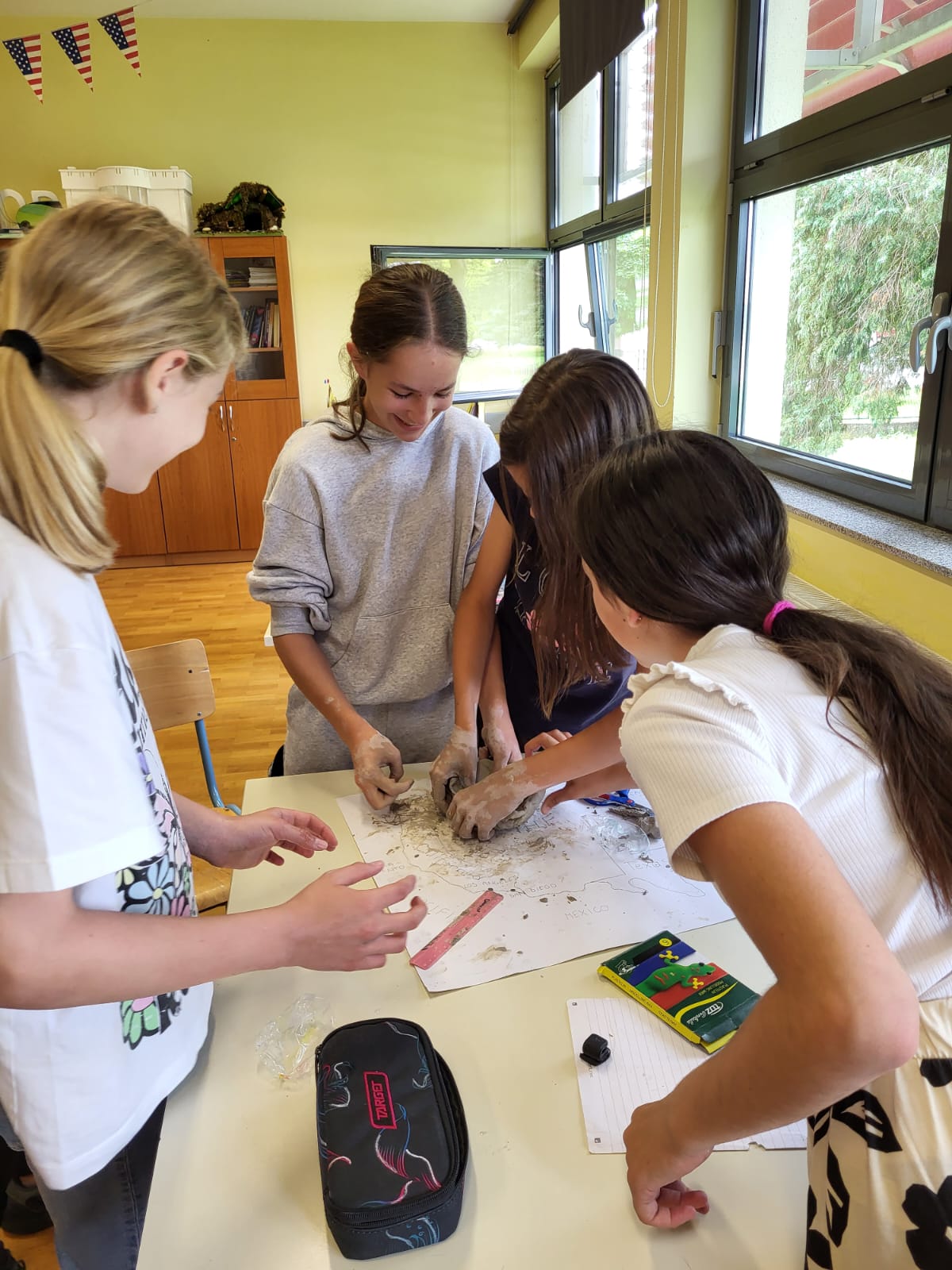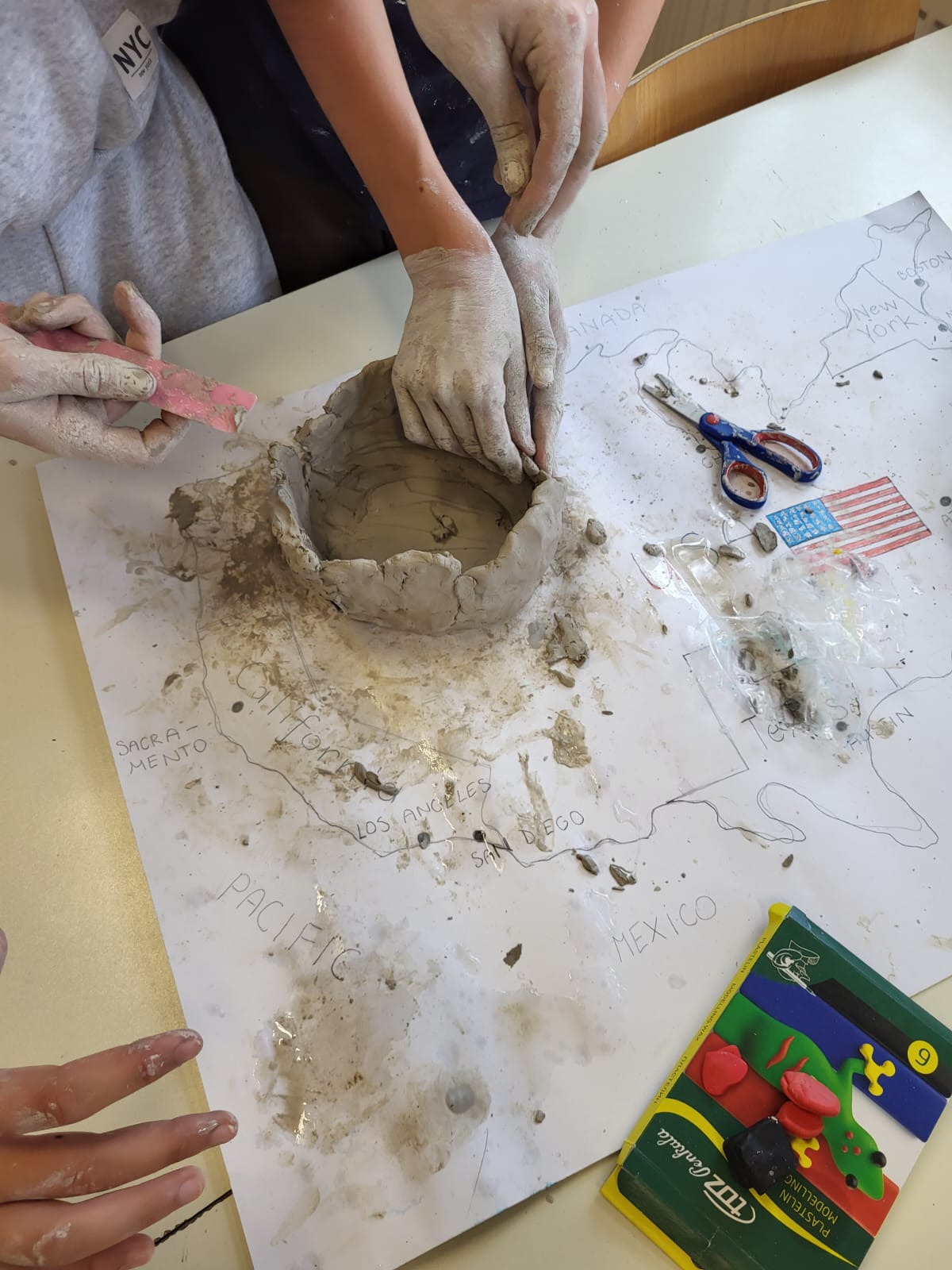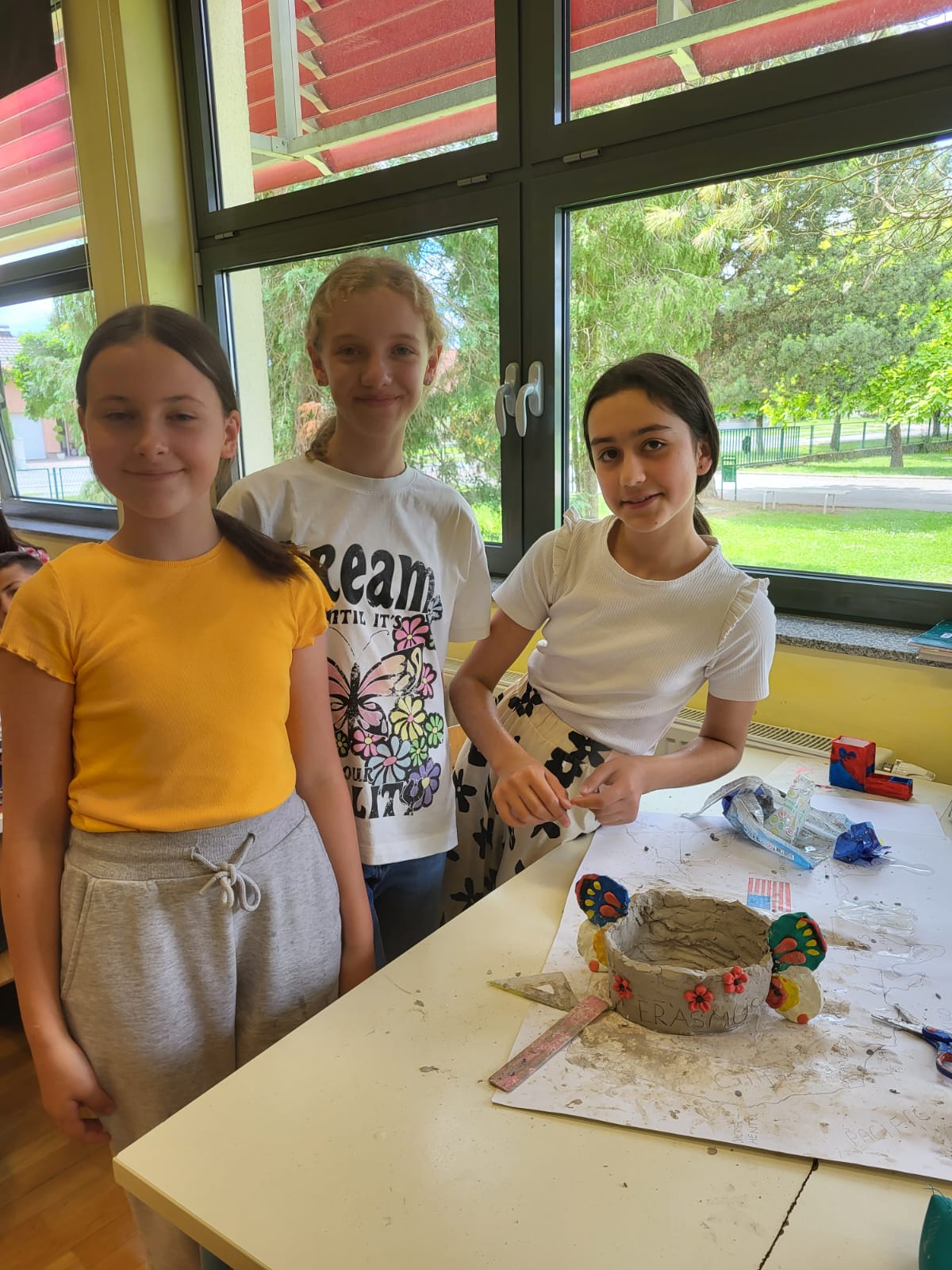Osnovna škola "Bogoslav Šulek" Slavonski Brod


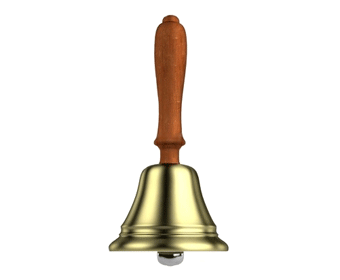
Matična škola
| 1. | 8.00 - 8.45 |
| 2. | 8.50 - 9.35 |
| 3. | 9.50 - 10.35 |
| 4. | 10.40 - 11.25 |
| 5. | 11.40 - 12.25 |
| 6. | 12.30- 13.15 |
| 7. | 13.20 - 14.05 |
| 8. | 14.10 - 14.55 |
| 9. | 15.00 - 15.45 |
| 10. | 15.50 - 16.35 |
| 11. | 16.40 - 17.25 |
| 12. | 17.30 - 18.15 |
Područna škola - Vranovci
| 1.smjena | |
| 1. | 7.50 - 8.35 |
| 2. | 8.40 - 9.25 |
| 3. | 9.40 - 10.25 |
| 4. | 10.40 - 11.25 |
| 5. | 11.30 - 12.15 |
| 6. |
12.20 - 13.05 |
| 7./0.sat | 13.10 - 13.55 |
| 2.smjena | |
| 1. | 14.00 - 14.45 |
| 2. | 14.50 - 15.35 |
| 3. | 15.50 - 16.35 |
| 4. | 16.40 - 17.25 |
| 5. | 17.30 - 18.15 |
| 6. | 18.20 - 19.05 |
| « Ožujak 2025 » | ||||||
| Po | Ut | Sr | Če | Pe | Su | Ne |
| 24 | 25 | 26 | 27 | 28 | 1 | 2 |
| 3 | 4 | 5 | 6 | 7 | 8 | 9 |
| 10 | 11 | 12 | 13 | 14 | 15 | 16 |
| 17 | 18 | 19 | 20 | 21 | 22 | 23 |
| 24 | 25 | 26 | 27 | 28 | 29 | 30 |
| 31 | 1 | 2 | 3 | 4 | 5 | 6 |


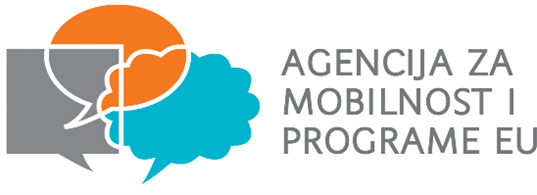
O projektu
This 2 years eTwinning project will be the main tool for the collaboration and dissemination of the Erasmus+ project with four schools from Croatia, Poland, Portugal and Romania.
Disabled and SEN students (including autism spectrum disorders) and immigrants very often suffer from the lack of identity, self-esteem and motivation.
The aim is to motivate SEN students, with disabilities and immigrants, that will collaborate and cooperate with regular students, promoting inclusion, creating for them the opportunity to participate in all aspects of school life whenever possible, and preventing early school leaving.
Teachers will exchange ideas, share experience, support each other, and participate in workshops, lectures and training to better understand their students.
Our first mobility supposed to be in Romania, but due to a coronavirus pandemic it was postponed. We will hang out with our partners virtually until situation improves. We got to know Romania virtually and made a short presentation.
https://view.genial.ly/5fb16343adefec0d0e85a8e7/interactive-image-romania
Please see our project logo, it was selected with the most votes by students from all participating countries.
11th December 2020 students of 1st c grade from today are richer for one more experience. They attended interviews with students from Poland, Romania and Portugal. They exchanged experiences and experiences of celebrating Christmas, sang Christmas songs and wished happy holidays to their new distant friends.
On Thursday, 23rd of February, school yard of Elementary school Bogoslav Šulek was full of cheerfull children voices. To have attention on development of phisical activity, preservation and development health and creating positive self image, teachers of first grade student, organised an Olympic Day. Sports courts were overun with youngest students, who competed in rope pulls, gimnastic ring, ball games, playing.
Our school has been taking part in the Erasmus program. Our partners are schools from Romania, Portugal and Poland. The project deals with issues like equality, creativity, tolerance, cultural diversity, tradition, acceptance and respecting diversity. Class 6c was chosen to participate in a videocall with students from other countries. The videocall took place on 26 February and the topic were Croatian Paralympians.
Firstly, high school students from Romania presented Romanian Paralympians. They talked about their achievements as well as their injuries. We all communicated in English. Next up were special-ed students from Poland. Their teacher helped them present the most popular paralympians from their country. Then, it was our turn. Six students from my class presented our paralympians. Karla Budisavljević and Hana Crnojević introduced the topic in general. After that, Nicolas Mec talked about Milka Milinković, Matej Vukoje about Mihovil Španja, Gabriel Rubil about Antonia Balek, Ilaria Kraljević about Darko Kralj and finally, Hana Crnojević about Sandra Paović. The last country was Portugal. Their students made a Kahoot quiz with eight questions that were read by students who also played the quiz.
The videocall was fun and interesting. It makes us happy that we met students from other countries and we’re all looking forward to the next videocall and socializing.
Karla Budisavljević, Ilaria Kraljević and Hana Crnojević, 6.c
The video conference was held on 26th March, and students of 6th f grade, from school in Vranovci, represented us. The task was to introduce interesting facts about Croatia, and learn some specifics of other countries. This presentation was made on the digital learning platform, Padlet, and all of the participants were communicating in English language. Every school followed given guidelines, while talking about its country through video, presentation, movie, music video or text written on the map. The map contained all the important and recommended places, from all four schools. Students from Poland started the video conference. We were the second ones, and six students represented us. At the beginning of our presentation, students greeted everyone, and played a short movie about our school. All the important projects, and activities, held, and performed in our school, throughout the whole school year, were shown in the movie. Next, we took them on a tour through Croatia, which started in a nearby magic place, Stribor’s forest. After that, we took them to Adrenalin park Duboka. Soon, we became hungry, and decided to go to Osijek, where we introduced Croatian regional cuisine. We also presented places in which we can relax, have fun, or learn something new. We virtually visited Krapina, and its unique The Krapina Neanderthal Museum, and presented our rich historical and cultural heritage by visiting Pula Arena, city of Šibenik, Diocletian’s Palace, and City walls of Dubrovnik. Also, there is a lot of Croatian intangible cultural heritage on UNESCO’s list, so we decided to travel to Sinj, to see a chivalric tournament Sinjska Alka. We ended our presentation with The Croatian Tourist Board’s video, which follows some famous Croatian athletes and artists, who take viewers through Croatia’s natural beauties, plentiful cultural heritage, outstanding gastronomic offer, and many fascinating places for fun and relaxation. The quiz game on Kahoot, made by students from Poland, indicated the end of the video conference. To our delight, our students won!
This project was very fascinating, entertaining, and useful. We met students from other countries, and we are looking forward to a new virtual meeting!
http://padlet.com/justynaczyz29/8clxweny8fmi5n3g
Black, white or yellow, we all have the same wish – Erasmus+ project activities
As a part of the Erasmus+ Programme project in May 2021, pupils in class 3b and 3d in the primary school Bogoslav Šulek, Slavonski Brod got more acquainted with the lives of migrants.
One of the aims of this Erasmus+ project is to build tolerance and overcome differences. As the so-called Balkan route cuts across our county and there were two asylum-seekers from Syria – Nasa and Rashid Jabo – we have decided to do some research and to get more acquainted with the migrants.
We started the conversation with what the children already know about migrants and found out that some of the pupils do not have a good opinion about them. Moreover, most of the pupils know very little about the migrants. In order to understand the migrants, we need to get to know them. First, we examined the meaning of words migrant, refugee, person in exile, asylum, asylum seeker. We have come to the conclusion that the correct term for people from Pakistan, Afghanistan, Iran, Iraq, Syria and other countries, who are trying to reach their destination country, where they will have a better life by crossing Croatia is not, in fact, migrants but refugees. However, we are going to use the term migrants because it has already been well established.
We remebered the Croatian War of Independence (Homeland war) when Croatia accepted and provided protection and help for refugees from Bosnia and Herzegovina, as well as for the people in exile from war-torn parts of Croatia, particularly from the eastern Croatia, namely Vukovar. Some of the pupils said that their grandparents came as refugees from Bosnia and Herzegovina and found protection in Croatia, where they subsequently stayed to live, after the war ended.
Our pupils became aware of the main reasons that are forcing migrants to leave their homes and homeland, such as: war, life-endangering events, insecurity, destitution, poverty …. The pupils got acquainted with the lives of migrant children on their years-long travel mainly on foot, without enough water, food, sleep, their daily exposure to danger while meeting criminals who want to use the fact that the child migrants are in need and unprotected along with the fact that those children witness the police abuse and violence to their immediate family members, pushing them back from entering or crossing the border. Whole families are put together in one room or a tent, children do not have any room to play or any toys, and basic hygiene requirements are below standard.
After entering the country they seeked in and were approved of an asylum, migrants face difficulties again, such as: inability to communicate because of the foreign language barrier, mandatory education after not attending school for years, forcing children to adjust and conform to a new but to simultaneously preserve their own culture which is tied to their family.
After everything we have learned, we noticed a change in forming an opinion about migrants with our pupils. That change is also seen in the messages our pupils conveyed to migrant children (refugees), asylum-seekers after finishing our research. Here are some of the messages:
I wish you a warm welcome to Croatia!
I want to be your friend.
Your goodnes and honesty is important, not your religion or colour.
I am sorry that so many bad things have happened in your life
It´ll be interesting to learn about the customs of your country and to share our country´s traditions and customs with you.
I wish you didn´t have to live through wars and I would love to help you.
I hope you´re going to like our food. I´m looking forward to tasting food and cakes from your country.
Don´t be frightened, when you come to Croatia, I´ll help you!
The pupils have presented what they have learned on a poster and in brochures they created by themselves.
We have come to the conclusion that all of us want the same thing, no matter what colour skin we are, that is, to have food, water, a good night´s sleep, home, security, love, respect …. Being different is not a reason to ridicule or make fun of somebody. On the contrary, diversity enriches our lives and it is important to help those in need because we would like someone to offer us help, if we were in the same situation.
As part of the Erasmus + project Variety is the spice of life, on Friday June 11, 2021, students of the 6th grade of our school participated in a video conference with partner countries Portugal and Poland. In the 6th grade classroom, in addition to the students, the principal Slavica Đurđević and the project manager Sanja Bjelobabić were also present. Both students and their teachers participated in the video call. Our task was to present the sights and attractions of Portugal. Students from Portugal were the first to present their presentation and had difficulty with the internet connection. Poland was second in line to present its presentation, and we were the last. The video conference lasted from 11 a.m. to noon. The presentations were great and everyone liked them and we had a particularly good time during the Kahoot quiz.
Lana Gusak, Ana Lukšić and Marija Liović, 6.b.
Na engleski prevela: Luciana Emanović, 6.b
After a short summer break, we hang out again. In the live broadcast, Luciana Emanović and Tino Sekulić presented the sports activities of our school.
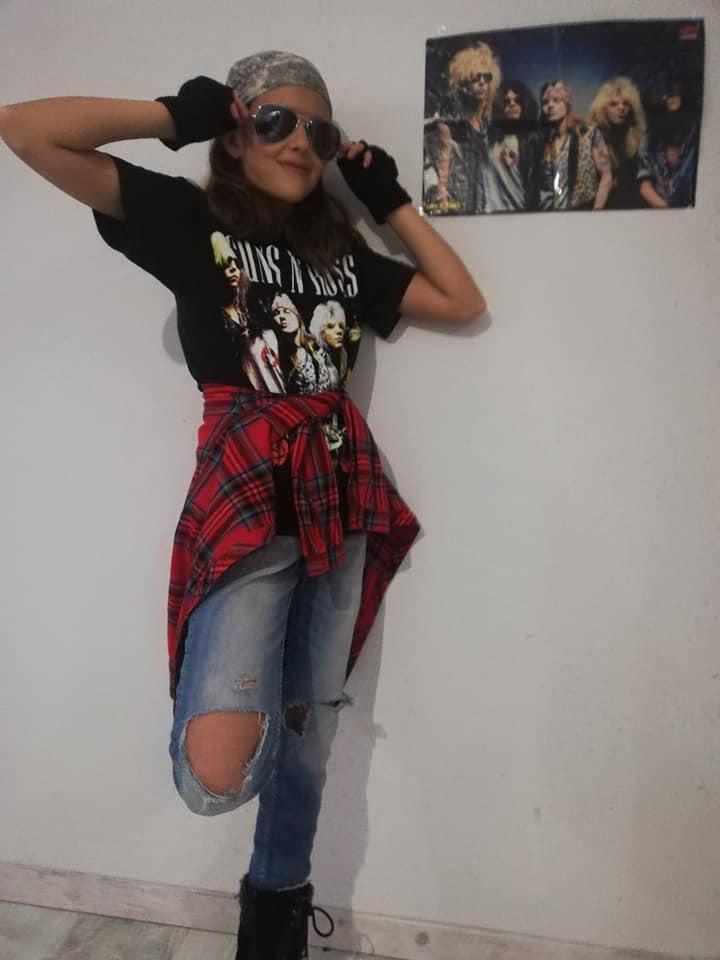
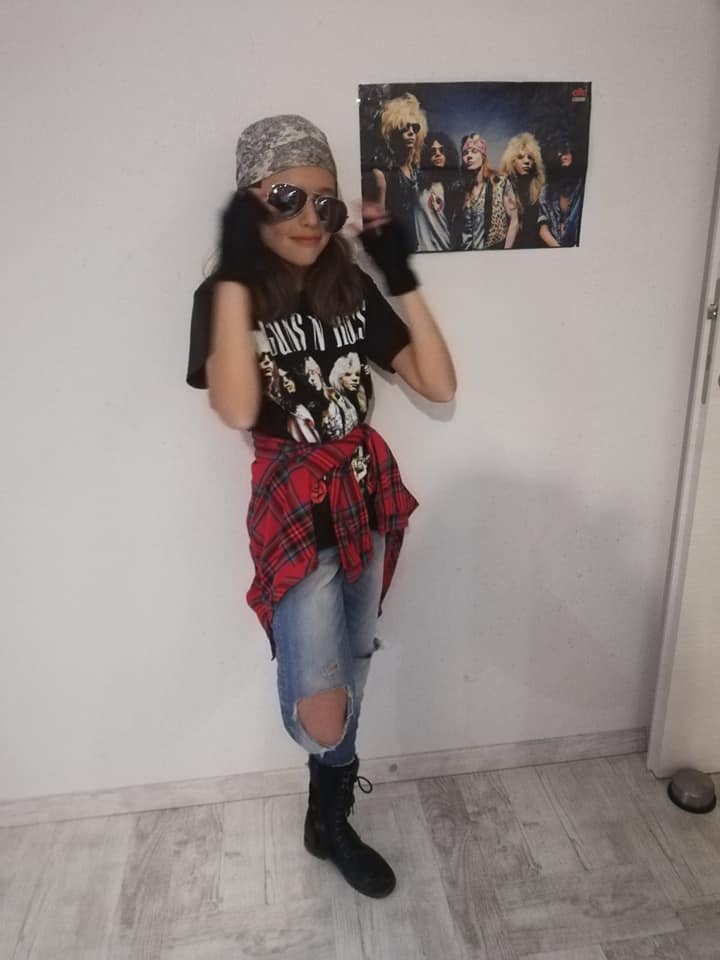
17th December, 2nd grade students participated in a virtual meeting with students from Poland, Romania and Portugal.
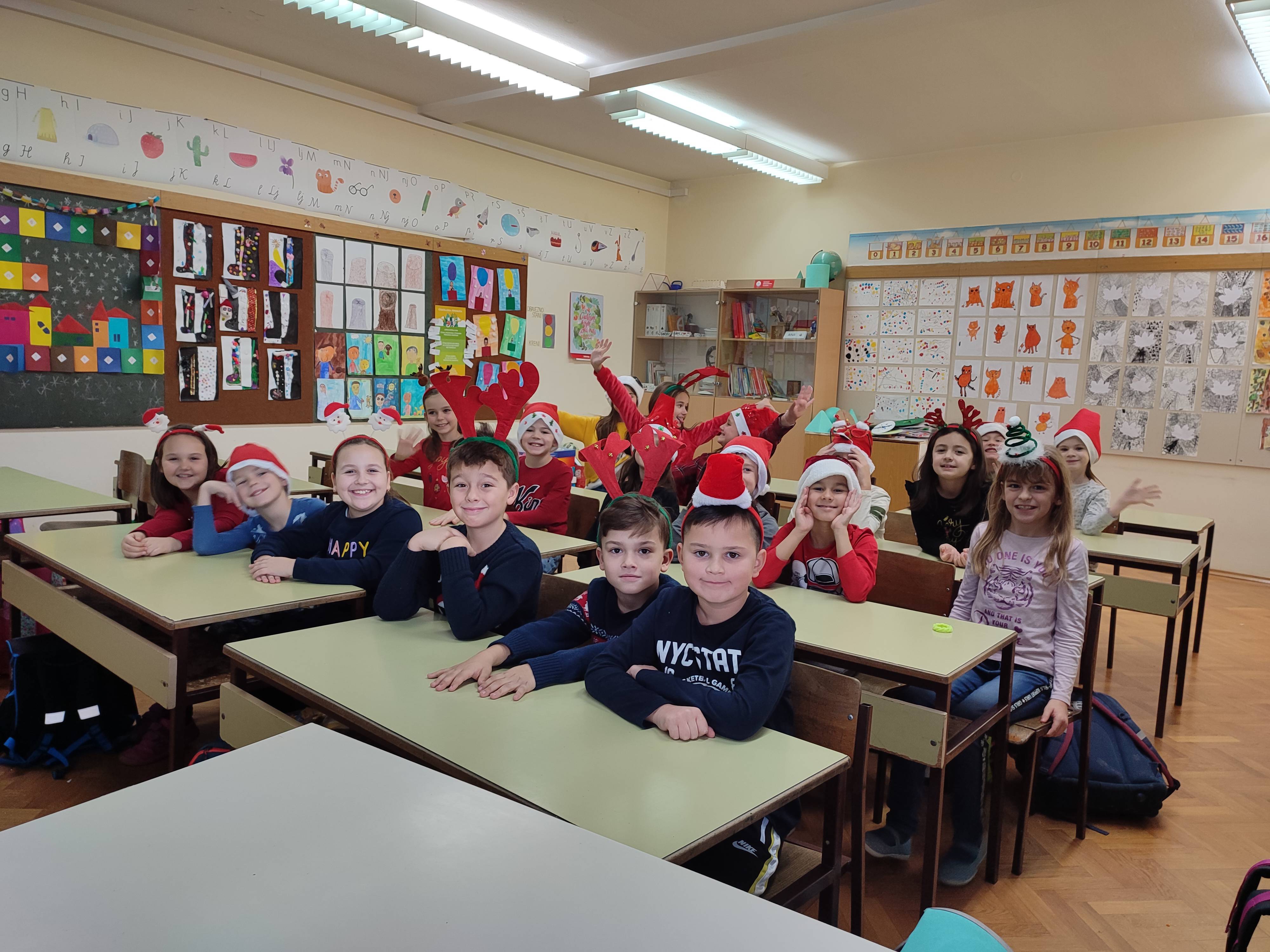
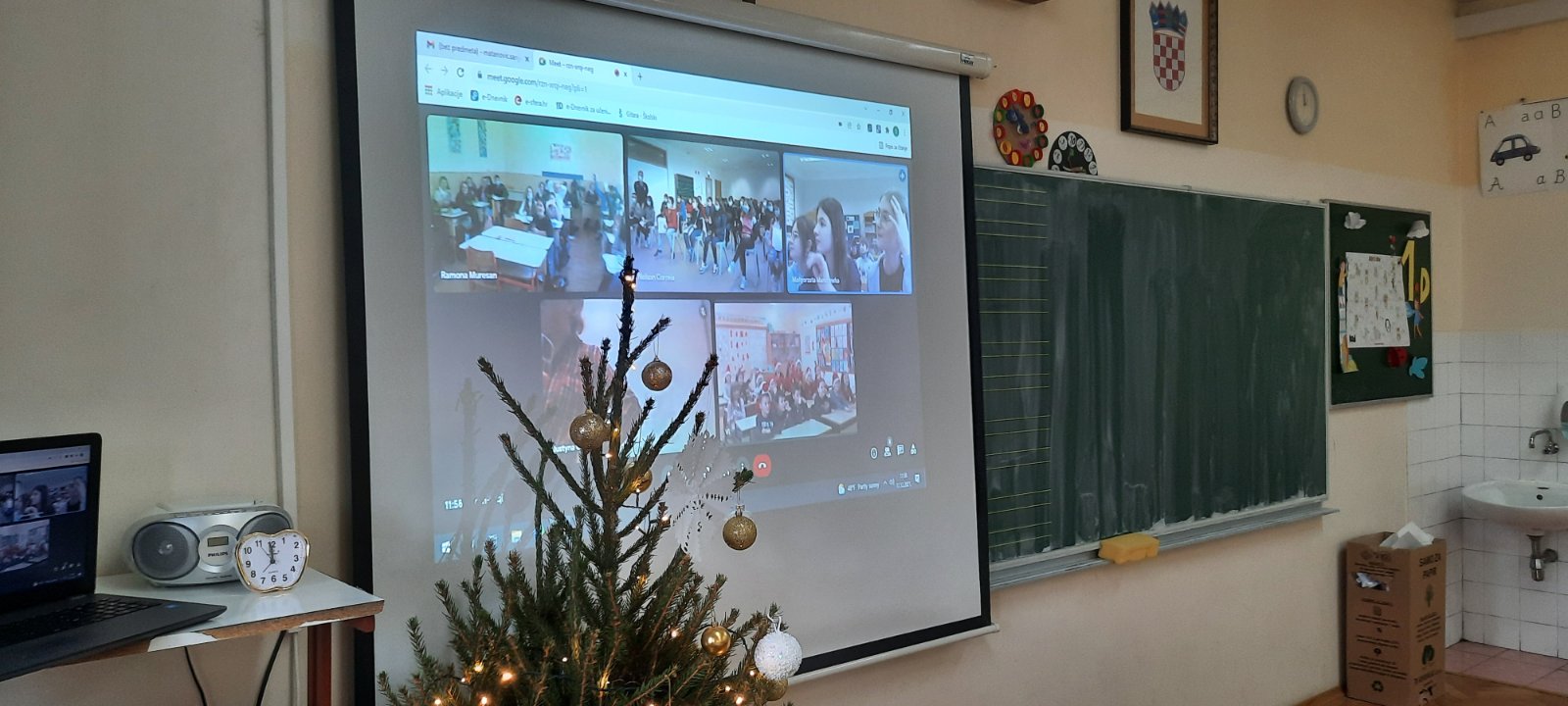
Bogoslav Šulek Elementary School hosted partners from Portugal, Poland and Romania last week. The project "Diversity is the spice of life" has been officially opened.
The aim of this two-year project is to motivate students with special needs, disabled students and immigrants, to promote inclusion, create opportunities to participate in all aspects of “school life” whenever possible and to prevent leaving school in early stages of life. Teachers will share ideas and experience, support each other and participate in workshops, lectures and trainings in order to understand their students better. We welcomed the partners with a welcome program, took them for a walk around our school and introduced them to our educational system. The theme of the week was tolerance and acceptance of diversity. Each of us is different, unique in our own way. Differences in upbringing and education, as well as differences in the information we are exposed to throughout life, create our beliefs, stereotypes or the attitude we have towards life.
Accepting differences means understanding in what ways we are similar, what makes us different, and treating everyone with respect and understanding regardless of those differences.
Workshops for partners were prepared by our school students who also conducted them.
Partner schools had the opportunity to get to know the cultural and historical sights of our city, they got to know our river beach “Poloj”and the wider surroundings of Slavonski Brod.
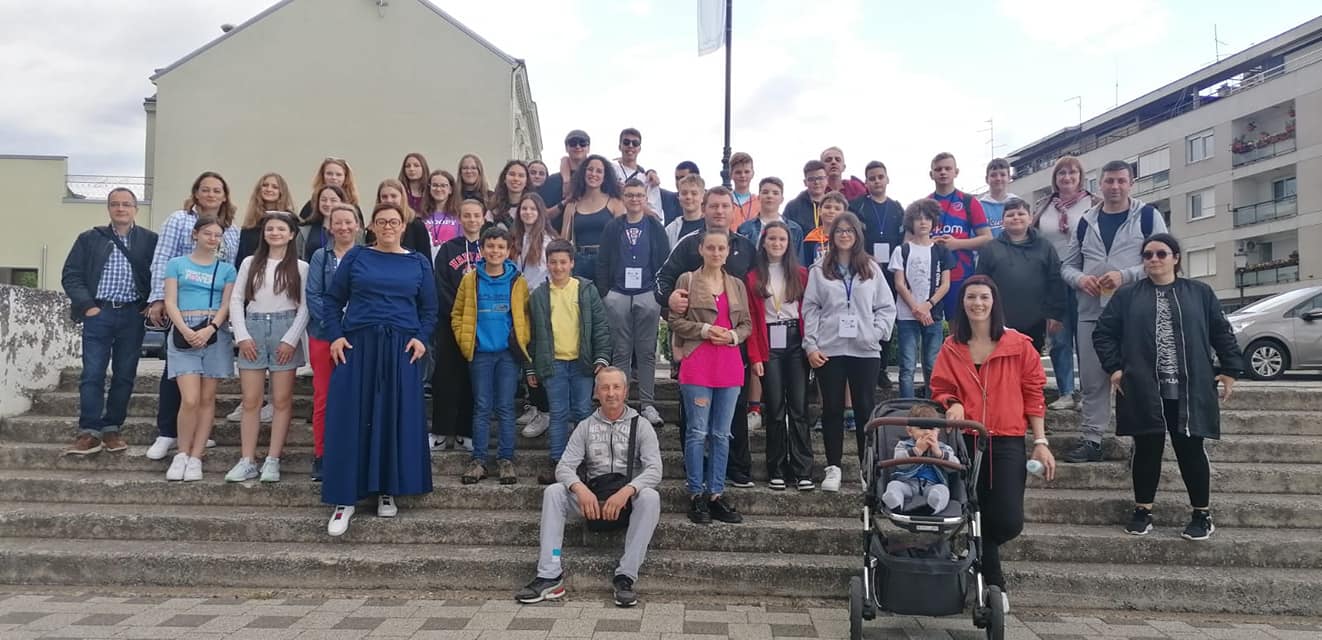
As part of the Erasmus+ project Variety is the spice of life, our students visited Portugal. They stayed in city Torres Novas from 14th to 19th November. On the first day of the mobility, they were warmly welcomed by the hosts, and after the initial presentation of partner's school, students were divided into three groups. They took part in three different activities, including sport, art, and robotics workshops. After lunch, they had a tour around Torres Novas, where the city major greeted them.
On the second day of the mobility, our students learned some new information connected with inclusive education in Portugal. They also visited rehabilitation and reintegration center. After the break, they visited Natural Monument of the Dinosaur Footprints and Caves Lapas.
The next day, our students went to Tomar University. First, they listened to a lecture about robotics and programming, and then went around few laboratories, where they could see how programming of the equipment for people with disabilities works. They also tried to program a robot on their own. In the second part of the day, students visited the city of Tomar, Convent of Christ and Almourol Castle.
On the last day of the mobility in Portugal, our students visited Mira Aire Secondary School. There, they attended six different workshops, that all had a topic of robotics and programming. Through activities, they dealt with application of virtual reality, coding robots, and augmented reality.
Students also visited Sanctuary of Our Lady of Fatima in Fatima, and beach Nazare, which is known for its big waves, because of the location next to the Atlantic Ocean.
At the end of the day, after formal dinner and before their return to Slavonski Brod, students said goodbye to their new friends.
